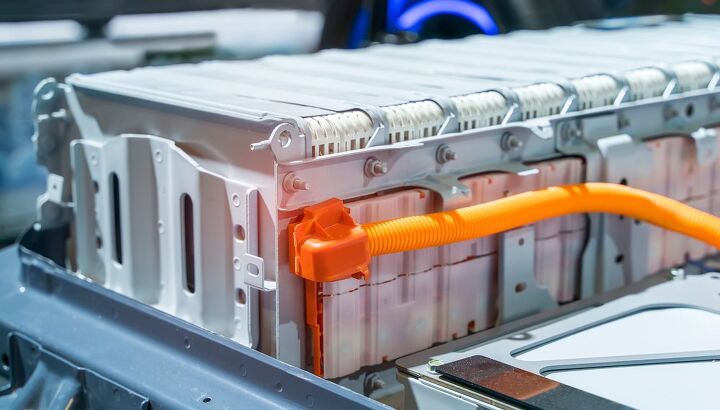South Korean Battery Firms Reach Settlement, Georgia Factory Approved

It looks like the White House won’t be needing to take any action in response to the International Trade Commission’s decision on how to handle the feud between South Korea’s LG Chem and SK Innovation. The duo has reached a settlement that would allow the former battery manufacturer to complete assembly on its $2.6-billion plant located in Georgia.
LG alleged that SK had stolen intellectual property and the ITC was backing punitive measures that would have forbade the latter company from importing certain lithium-ion batteries into the United States under a 10-year exclusion order. While exemptions were made for the components necessary to manufacturer them in the country, the arrangement was tied to SK’s existing orders and limited to just 4 years. The settlement gives SK additional leeway and prevents Joe Biden from having to consider the possibility of blocking the ITC decision as a way of maintaining American jobs.
Fortunately, LG Chem had stated that it would be open to letting SK Innovation finish its factory even during the early stages of the 22 trade secret claims. The settlement involves a $1.8 billion payment from SK and running royalty payments on all batteries manufactured at the Georgia site. In exchange, LG is dropping a U.S. intellectual property suit, resolving all legal claims in South Korea, resolving the ITC decision, and vowing not to sue SK under similar grounds for the next 10 years.
On the surface, it would seem that SK Innovation is getting a good deal in exchange for a substantial, one-time payment. But those royalty fees haven’t been expanded upon by either company and could stretch out for ages.
While both companies reported that the final decision was reached on Sunday, there were routine talks between the battery firms and government officials (both state and federal) ahead of the deal.
LG Energy Solution CEO Jong Hyun Kim even wrote a letter to Democratic U.S. Sen Raphael Warnock in March stating that his company “is prepared to do whatever we can to help the people and workers of Georgia.”
This came with the caveat that, if SK wasn’t eligible to run the plant, LG could step in and supervise — noting that it already had several U.S. facilities, thanks to its ties with General Motors, and planned on spending $4.6 billion to build more. But SK has contracts with Ford and Volkswagen, leading many to realize just how seriously the trade restrictions would benefit its main rival and the automakers that had allied themselves with LG.
The State of Georgia had also laid out $300 million in free land and other incentives for the SK plant that further complicated the issue. The battery firm spent much of March trying to convince the U.S. government that leaving the ITC decision in place would effectively give LG a regional monopoly. At the same time, LG was arguing with SK over the level of compensation it required to withdraw its legal claims and let the factory finish completion — which is still expected to conclude sometime in 2022. If everything goes according to plan, the site is supposed to have 2,600 workers pumping out lithium-ion batteries for more than 300,000 electric vehicles annually by 2024.
[Image: Asharkyu/Shutterstock]

A staunch consumer advocate tracking industry trends and regulation. Before joining TTAC, Matt spent a decade working for marketing and research firms based in NYC. Clients included several of the world’s largest automakers, global tire brands, and aftermarket part suppliers. Dissatisfied with the corporate world and resentful of having to wear suits everyday, he pivoted to writing about cars. Since then, that man has become an ardent supporter of the right-to-repair movement, been interviewed on the auto industry by national radio broadcasts, driven more rental cars than anyone ever should, participated in amateur rallying events, and received the requisite minimum training as sanctioned by the SCCA. Handy with a wrench, Matt grew up surrounded by Detroit auto workers and managed to get a pizza delivery job before he was legally eligible. He later found himself driving box trucks through Manhattan, guaranteeing future sympathy for actual truckers. He continues to conduct research pertaining to the automotive sector as an independent contractor and has since moved back to his native Michigan, closer to where the cars are born. A contrarian, Matt claims to prefer understeer — stating that front and all-wheel drive vehicles cater best to his driving style.
More by Matt Posky
Latest Car Reviews
Read moreLatest Product Reviews
Read moreRecent Comments
- Redapple2 I think I ve been in 100 plants. ~ 20 in Mexico. ~10 Europe. Balance usa. About 1/2 nonunion. I supervised UAW skilled trades guys at GM Powertrain for 6 years. I know the answer.PS- you do know GM products - sales weighted - average about 40% USA-Canada Content.
- Jrhurren Unions and ownership need to work towards the common good together. Shawn Fain is a clown who would love to drive the companies out of business (or offshored) just to claim victory.
- Redapple2 Tadge will be replaced with a girl. Even thought -today- only 13% of engineer -newly granted BS are female. So, a Tadge level job takes ~~ 25 yrs of experience, I d look at % in 2000. I d bet it was lower. Not higher. 10%. (You cannot believe what % of top jobs at gm are women. @ 10%. Jeez.)
- Redapple2 .....styling has moved into [s]exotic car territory[/s] tortured over done origami land. There; I fixed it. C 7 is best looking.
- TheEndlessEnigma Of course they should unionize. US based automotive production component production and auto assembly plants with unionized memberships produce the highest quality products in the automotive sector. Just look at the high quality products produced by GM, Ford and Chrysler!


































Comments
Join the conversation
First picture: Just a terrible, terrible decision to politicize the color (don't say it!) of the power cables on modern EV's. [Can't we keep it neutral? No, then it won't run. Are you positive?]
I read through the article and couldn't see where the colour of the cables was a politically correct/incorrect decision. All I know that if you are a first responder in the case of an accident, orange cables say stay away or I'll kill you!